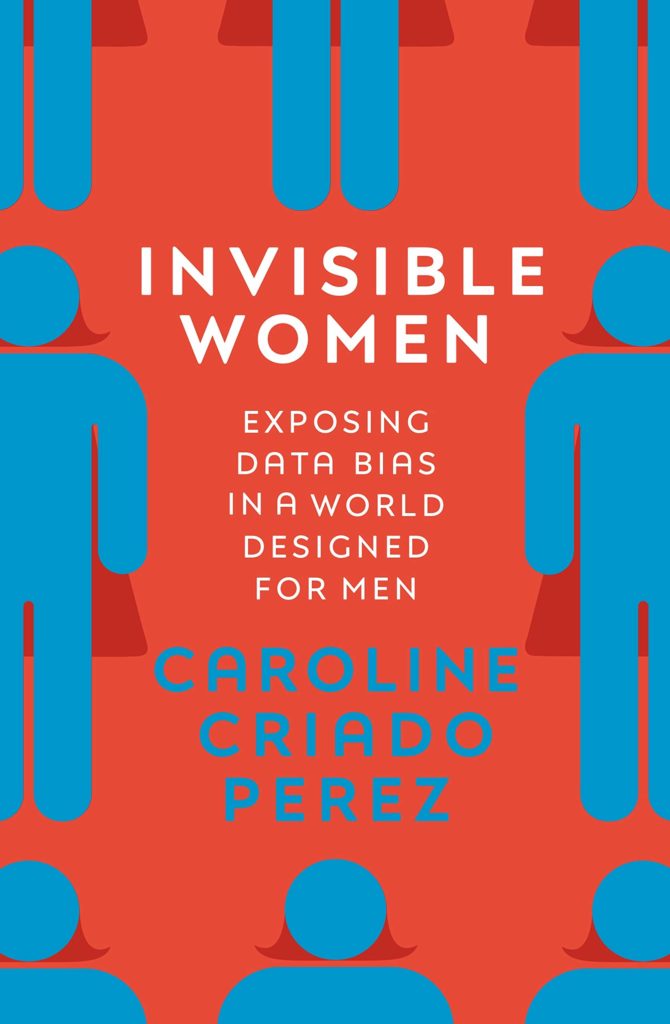Susan Faludi’s Backlash changed the way I looked at the world.
I just finished Carolina Criado Perez’s book Invisible Women: Exposing Data Bias in a World Designed for Men, and I feel exactly the same way.
I will never be able to look at anything the same way. And it is the only book EVER in which I bookmarked the end notes to read as I went along.
The thing about sex and gender bias (and misogyny and sexism and the patriarchy) is that it’s easy to dismiss under the guise of “normalcy” or “biology” or “tradition.” But as Perez lays out in meticulous fashion, as soon as you scratch the surface, it’s evident that “normal” is only true if you are a man (and usually a white one at that).
Why is the literary canon dominated by white male writers? Because those books and stories are what white men felt were more important. It’s not necessarily nefarious, (though some of it is), it’s just that it never occurred to them to diversify, because men are considered normal, the default. Why would anyone be interested in books about marriage and the hearth, stories of and by women? What the old literary canon neglects is that the stories of and by women are important–in and of themselves, but also precisely for the other 51% of the population who never see themselves in the stories we’re told are the best and most important.
Why do we use the imaginary 5’11” male body as the norm when more than half of the world’s population is female? How can we expect everything from Kevlar vests to seatbelts to traffic patterns to infrastructure to cell phones to pianos to medication to work if it’s all designed to fit a “norm” that more than half the world is never going to meet? And why aren’t we collecting data on how to meet the needs of that other half–because we’re most definitely not, or when we are, it’s not being taken seriously.
This book is a must read for everyone. I can’t recommend it highly enough.
***The opinions expressed in this review are those of the author. This review includes affiliate links to Amazon.com. If you purchase the book through one of these links, Outside Voice will receive a small amount, which we use to keep our lights on and to contribute directly to the campaigns of Black women and other outside voices running for public office. No financial consideration was given from the book’s author, publisher, or Amazon.com in exchange for this review.

